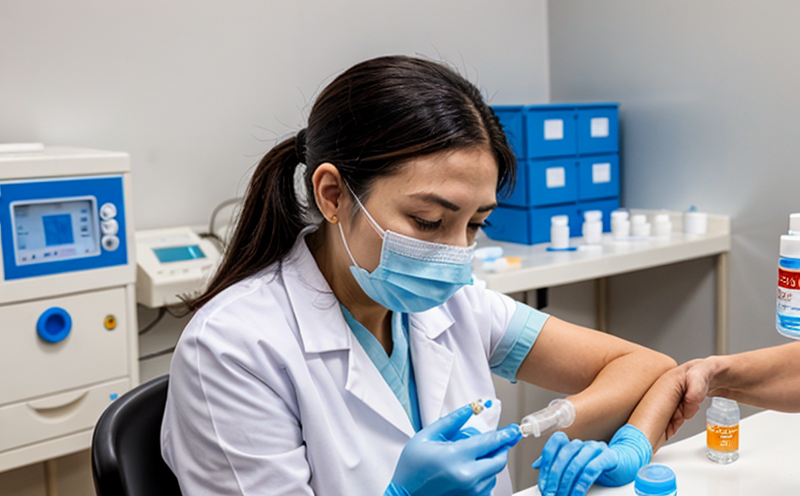In Vivo Immunogenicity Testing of Vaccines
In vivo immunogenicity testing is a critical step in the development and quality assurance of vaccines. This process involves assessing the immune response of test animals to an experimental vaccine, thereby providing insights into its efficacy and safety. The test helps identify potential adverse reactions that might occur after vaccination, ensuring that the final product meets stringent regulatory requirements.
The primary goal of in vivo immunogenicity testing is to evaluate whether a vaccine can successfully induce a protective immune response without causing significant side effects or toxicities. This type of assessment is essential for vaccines targeting both human and veterinary use, as it ensures that only safe and effective products reach the market.
The process typically involves several stages: selection of animal models, administration of the vaccine candidate, monitoring of immune responses, and evaluation of any adverse events. The choice of animal model is crucial, as different species may react differently to a given vaccine. Common choices include mice, rats, rabbits, and non-human primates.
Once the animals receive the vaccine, they are closely monitored for signs of an immune response. This can be done through various methods such as blood sampling to measure antibody levels or tissue biopsy to assess cellular immunity. Additionally, behavioral changes and other physiological indicators are also recorded to ensure comprehensive data collection.
The results from these tests provide valuable information about the vaccine's performance, helping researchers refine their formulations if necessary. Regulatory bodies like the FDA (Food and Drug Administration) in the United States or the EMA (European Medicines Agency) require such testing as part of their approval processes for new vaccines.
It is important to note that while in vivo immunogenicity testing is highly effective, it also comes with challenges. The variability among different animal models can lead to inconsistent results, necessitating careful experimental design and statistical analysis. Moreover, ethical considerations play a significant role in the conduct of these tests, emphasizing the need for humane practices.
Despite these challenges, in vivo immunogenicity testing remains indispensable for ensuring public health. By providing robust data on vaccine safety and efficacy, this testing contributes significantly to the development of innovative therapies that can protect against infectious diseases.
Why It Matters
The importance of in vivo immunogenicity testing cannot be overstated. This type of testing is crucial for several reasons:
- Ensuring Safety: By identifying potential adverse reactions early on, this test helps prevent the release of unsafe vaccines.
- Enhancing Efficacy: Understanding how effectively a vaccine induces an immune response allows for improvements in its formulation and delivery methods.
- Regulatory Compliance: Meeting stringent regulatory standards is essential for gaining market approval, which this test facilitates.
Why Choose This Test
Selecting the right testing method is critical when developing vaccines. In vivo immunogenicity testing offers several advantages over alternative approaches:
- Comprehensive Assessment: It provides a holistic view of vaccine performance, including both humoral and cellular immune responses.
- Real-World Relevance: Results from this test closely mimic the human immune system, making it highly relevant for clinical applications.
- Regulatory Acceptance: Compliance with international standards ensures that your vaccine meets all necessary requirements before entering the market.
Competitive Advantage and Market Impact
In vivo immunogenicity testing can significantly enhance a company's competitive position by:
- Faster Development Cycle: Early identification of issues allows for quicker corrections and iterations, shortening the overall development timeline.
- Higher Success Rate: By minimizing risks associated with clinical trials, this test increases the likelihood of successful product launches.
Moreover, adherence to high-quality testing practices can differentiate a company in the market, earning trust and loyalty from customers and stakeholders. This can translate into increased sales and brand reputation, ultimately driving long-term growth.





